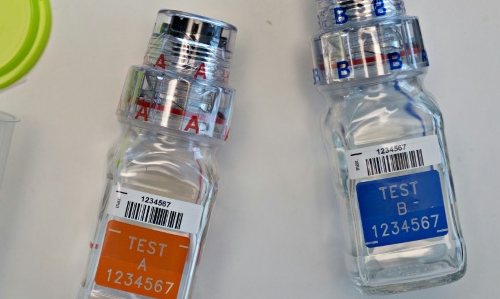ISLAMABAD: The Drug Regulatory Authority of Pakistan (Drap) said on Monday that remdesivir, a drug which has proved effective against coronavirus, will be available in the country within three weeks.
Chief Executive Officer (CEO) Asim Rauf told Dawn that Drap, after registration of the medicine, had allowed two pharmaceutical companies to import this critical drug. The regulator has given licences to 14 manufacturers for producing the medicine at home.
Remdesivir injection is an antiviral which stops the virus from reproducing itself or slows down its ability to do so.
The drug has been approved for use in the United States, Japan, South Korea and the European Union after its clinical trials turned out to be encouraging.
Drap official says 14 firms allowed to produce remdesivir in Pakistan
This is the same medicine which federal Railways Minister Sheikh Rashid Ahmed had mentioned at a press conference after he recovered from Covid-19.
Describing coronavirus as a horrible disease, Sheikh Rashid had regretted that the injection necessary for treatment of critical patients was not available even for Rs500,000 to a minister who had held 14 ministries in his political career.
“I thank the chairman of the National Disaster Management Authority for arranging this injection,” the minister had stated. “I pray that no one, not even my enemy, suffers from this disease.”
The Drap chairman conceded that the medicine was not easily available a week ago, but the situation had now improved and after three weeks sufficient stocks would land in the market.
However, he clarified, remdesivir would not be sold over the counter at pharmacies. “Instead, it will be provided to critical patients by hospitals concerned or directly by selected pharmaceutical companies.”
He said Pakistan was the sixth country in the world which had pounced upon the opportunity to make this medicine accessible to patients.
Remdesivir was approved by the US Food and Drug Administration (FDA) on May 1. A shortage then confronted the FDA, but with the passage of time the situation improved.
At a hearing on June 25, a five-judge Supreme Court bench, headed by Chief Justice Gulzar Ahmed, was informed that the National Disaster Management Authority (NDMA) had sought approval from Drap for the import of 7,000 vials of remdesivir injection, which was then unregistered.
The regulator, through its letter of June 9, had given an NOC to the NDMA with the condition that the latter must submit details of patients, including their CNIC numbers and prescriptions.
The regulator had also stated that it would not be responsible for the quality, safety and efficacy of the drug as the medicine was not registered with the authority.
The approval was issued under Rule 13 of Drugs Import and Export Rules of 1976, which required prior approval for the import of a medicine.
Unscrupulous elements
The Supreme Court ordered Drap to fast-track registration of the drugs which had already been registered in the West and were being used for the treatment of Covid-19. The court said the import of those drugs should be facilitated which were not manufactured in the country and later local production under licence be encouraged.
The apex court had also taken note of unscrupulous elements out to hoard the anti-virus chemicals, life-saving drugs and equipment used to detect, monitor and treat patients affected by Covid-19.
The court had regretted that basic instruments like dosimeters and oxygen cylinders had disappeared from the market and were being sold at exorbitant prices.
The court had ordered the regulatory authorities, law enforcement agencies and health ministries of the federal as well as provincial governments to take action against hoarders of these essential commodities.
Published in Dawn, July 7th, 2020















































